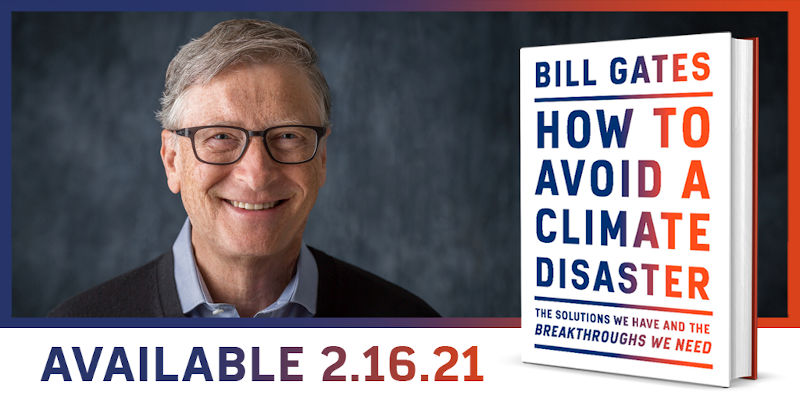
Other weak spots include an almost unquestioning enthusiasm for nuclear power, with scant paragraphs on the high costs holding it back and its intractable waste problem. The UK government’s sober climate advisers want and think it is realistic for people to eat at least a fifth less meat and dairy by 2050. Yet the trend to less consumption of animal products is under way in some countries. On this, he says that, for cultural reasons, “I just don’t think it’s realistic”. While overly optimistic about technologies that haven’t been cracked, including nuclear fusion, he is unnecessarily pessimistic about things that evidence shows can be done, such as eating less meat. Gates is less strong on food and land use. He is also good on the dull but vital detail of policy to make it all happen.

.jpg)
Happily, he gets the big stuff right: generating loads more clean electricity, electrifying everything we possibly can and spending loads more on R&D to sort the rest (aviation, shipping, heavy industry). Nice prose would be for nought if his solutions were amiss. Personal experience is mixed with a refreshing honesty on how hard decarbonising will be. You might not expect it from a former software engineer, but Gates can write. Pages on the inherently carbon-intensive process of making stuff that underpins the modern world, especially concrete and steel, are clear-eyed and well done.

Gates is strong on why it will be so hard to get to zero emissions – not least the inertia in the energy industry which he identifies – and explaining how much more there is to do beyond generating more solar power and making more electric cars. Refreshing honestyįor the most part, he succeeds. “When we have a fact-based view of climate, we can see that we have some of the things we need to avoid a climate disaster, but not all of them,” Gates writes. Moreover, his foundation’s work on issues including health and poverty across the globe has given him a better awareness than many writers of how a carbon fix that works for the US may not work for India.Īnd unlike some climate books siloed in just science or politics or business, he looks across all the sectors needed to eliminate humanity’s annual output of 51 billion tonnes of greenhouse gases.ĭense with numbers and facts and peppered with charts and tables, it is clear Gates would like this book to be the climate solution equivalent of the late Hans Rosling’s excellent dissection of skewed perceptions of the state of the world, Factfulness. On the other hand, he has an eye for detail, a knack for simply explaining complex issues, and an attractively unabashed interest in fertiliser depots and power stations.


 0 kommentar(er)
0 kommentar(er)
